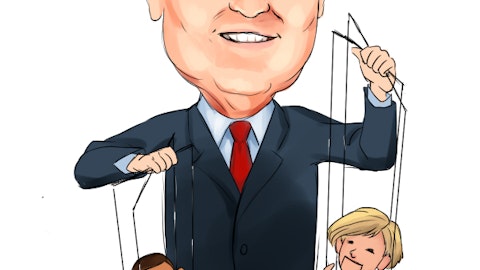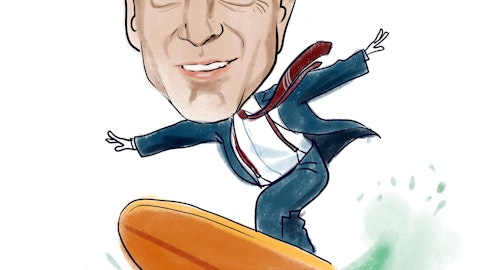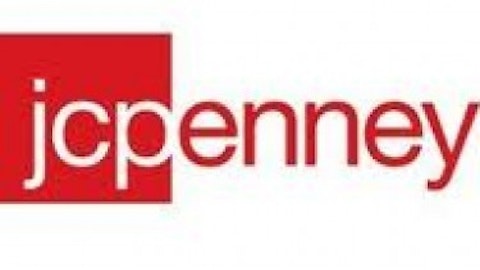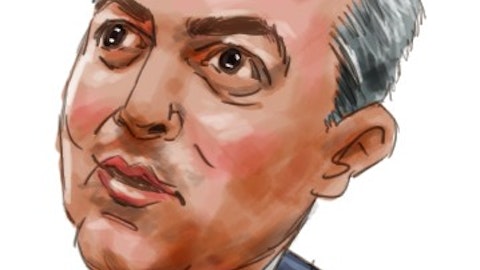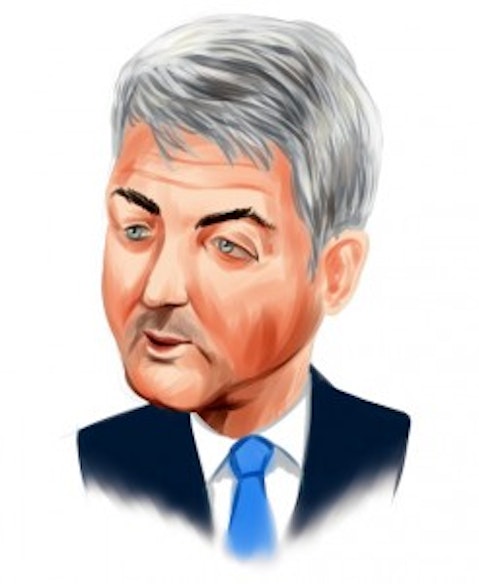
But on a relative basis, neither of those positions makes up a significant portion of Pershing Square’s capital. Ackman’s fund may own nearly one-fifth of J.C. Penney Company, Inc. (NYSE:JCP), but it’s less than 6% of Pershing’s portfolio. Likewise, the fund may have lost a few hundred million dollars on Herbalife Ltd. (NYSE:HLF), but that’s only a fraction of the $12 billion or so under management.
Rather, Ackman’s biggest problem could be Canadian Pacific Railway Limited (USA) (NYSE:CP). As of its last filing, the railroad represented over a third of Pershing’s capital (the fund has said it plans to sell up to 7 million shares over the next 6-12 months, but even then, it will still own about 17 million shares), and while it’s been a great investment thus far, there are growing reasons to doubt the company.
Canadian Pacific has been a big win for Ackman
While the investment media has focused on Herbalife Ltd. (NYSE:HLF) and J.C. Penney Company, Inc. (NYSE:JCP), Ackman has silently been making a fortune on his Canadian Pacific Railway Limited (USA) (NYSE:CP) stock.
Over the last 18 months, shares are up more than 65%. A steady stream of earnings beats (in the second quarter, earnings rose 250% from the prior year) has propelled the railroad, which, guided by Ackman’s hand-picked CEO Hunter Harrison, has successfully cut costs.
But Canadian Pacific Railway Limited (USA) (NYSE:CP)’s share appreciation has stalled — shares are actually down 4% over the last three months.
The breakup of the potash cartel
And shares could fall further. As a Canadian railroad, the company has significant exposure to the potash market.
That market was thrown into a state of upheaval when, earlier this month, Russia’s OAU Uralkali said it was planning to produce at full capacity — a threat to the potash cartel. For the most part, potash producers have limited their output, operating as a cartel to keep prices high.
Following that announcement, shares of the big Canadian potash producers — Potash Corp./Saskatchewan (USA) (NYSE:POT) and Mosaic Co (NYSE:MOS) — collapsed.
Potash Corp./Saskatchewan (USA) (NYSE:POT) lost about 25% of its value almost instantaneously, and its shares have yet to recover. Likewise, Mosaic shares dropped about 20% in one session, and are now down over 30% in the last three months.
Much ado about nothing?
Of course, the companies have downplayed the consequences of OAU Uralkali’s exit from the cartel.
Potash Corp./Saskatchewan (USA) (NYSE:POT)’s CEO said the media overreacted to the announcement — so far, he hasn’t seen any changes in potash pricing. Moreover, he believes the Russian cartel could reform. He argued that the demand for potash was relatively stable — regardless of price — and that cutting pricing wasn’t going to significantly affect demand.
Analysts at BGC Partners agree. They upgraded both stocks to Buy on Friday, writing that the cartel would soon reform, and both stocks would rebound.
But not everyone agrees. Analysts at S&P cut Potash’s credit rating on Tuesday to negative, noting that OAU Uralkali’s announcement had fundamentally altered the state of the potash market.

